19:45
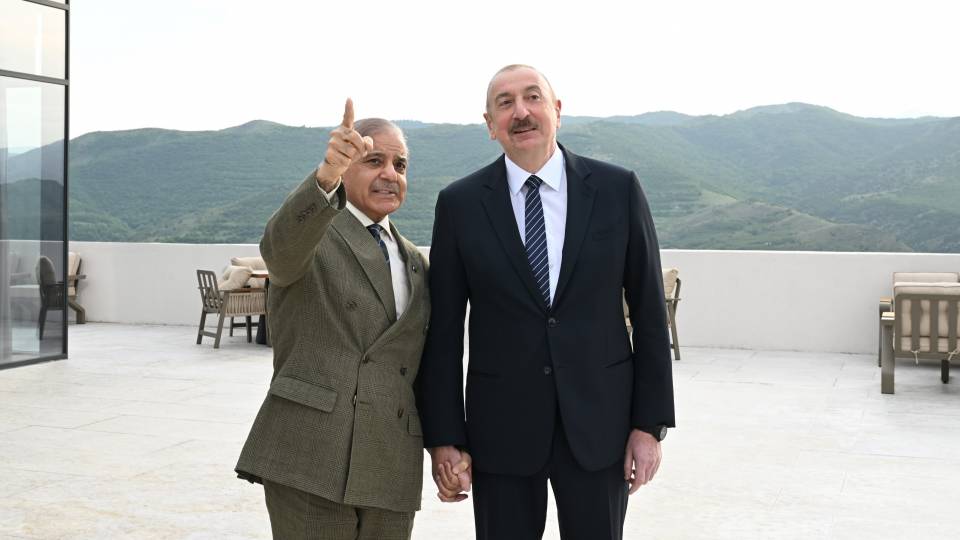
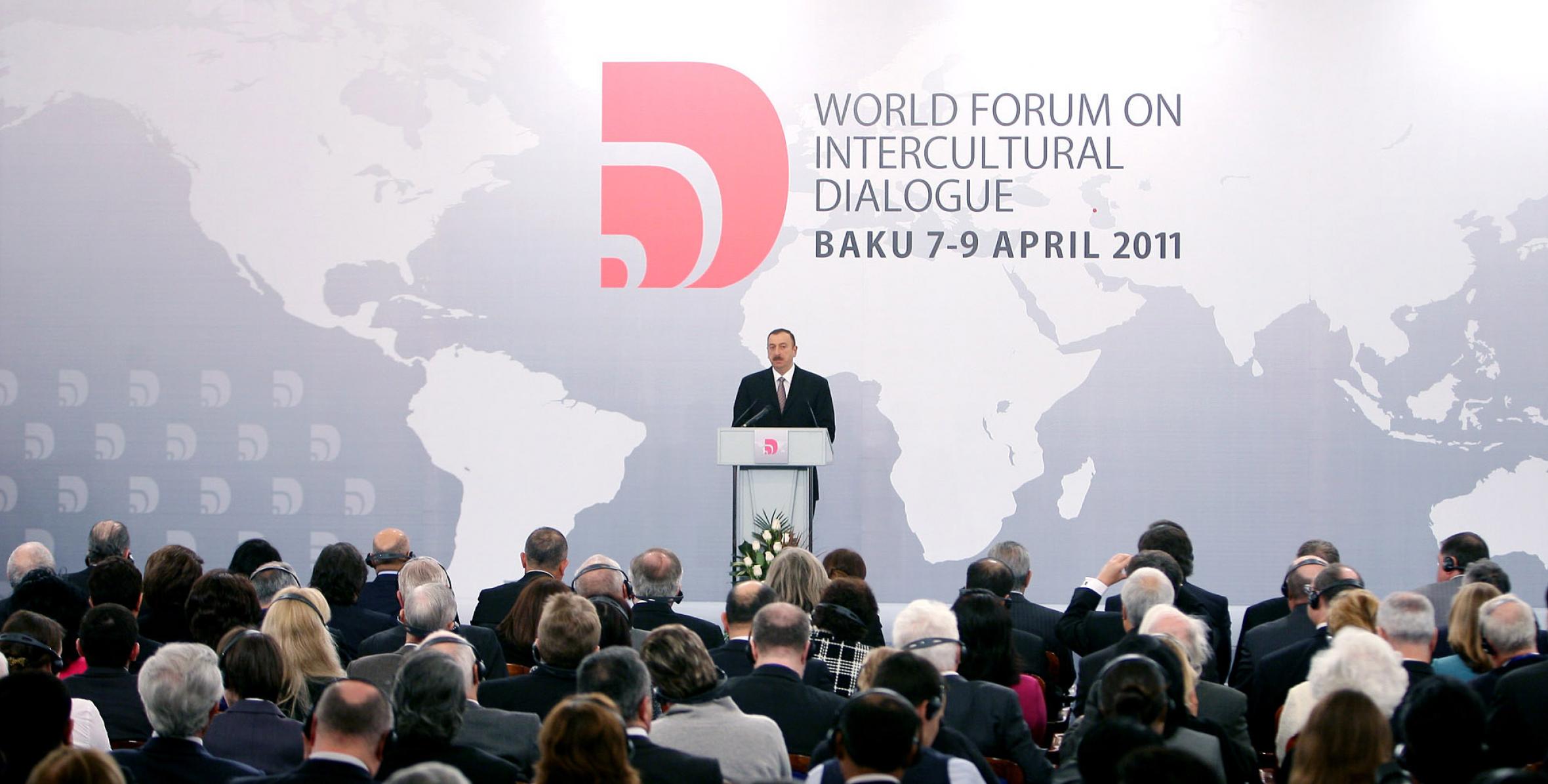
The World Forum on Intercultural Dialogue commenced at “Gulustan” Palace of Baku.
President of the Republic of Azerbaijan Ilham Aliyev and President of the Heydar Aliyev Foundation, Goodwill Ambassador of UNESCO and ISESCO, MP Mehriban Aliyeva attended the official opening ceremony of the World Forum on Intercultural Dialogue.
500 representatives - cultural Ministers from 20 countries, deputy ministers of numerous states, leading international organizations, including the ISESCO Director General, the Assistant Director General of UNESCO, the President of the Parliamentary Assembly of the Council of Europe, mayors of various world cities, distinguished cultural experts, practitioners, intellectuals and activists are attending the forum, which is organized under the motto - “United Through Common Values, Enriched by Cultural Diversity”.
The main aim of the Forum, supported by prestigious international organizations such as UNESCO, UN Alliance of Civilizations, Council of Europe, North-South Center of the Council of Europe, ISESCO and held in this format for the first time ever, is to advance the initiatives, realized by Azerbaijan in the sphere of intercultural dialogue, from regional context onto the global level, and to establish a fully-functioning International Forum in the country.
5 A – Intercultural Cooperation Platform is planned to be established at the Forum, which attracts wide attention for its scope of discussion items. Bearing in mind the Azerbaijani language acronym of the first letters of the five continents, represented with huge delegations at the event - “Avropa, Asiya, Amerika, Afrika, Avstraliya”, the new platform was symbolically named the “5 A’s”.
President of Azerbaijan Ilham Aliyev delivered a speech at the opening ceremony.
The speech of Azerbaijani President Ilham Aliyev
Dear ladies and gentlemen!
Distinguished guests!
I sincerely welcome all of you and say "Welcome!" to the participants in the forum.
The holding of the intercultural forum in Azerbaijan is of great importance. I am very happy that our guests accepted our invitation and came to Azerbaijan, and I believe that today and tomorrow will see a sincere and open exchange of opinions. I hope that the results of the forum will be very positive and create new opportunities for the development of intercultural dialogue.
It is no accident that this forum is being held in Azerbaijan. The "Baku process" has been under way for more than two years. The foundation of the "Baku process" was laid in Azerbaijan. The Azerbaijani side invited representatives of Islamic countries to the meeting of culture ministers of Council of Europe member states in 2008, and a sincere and open exchange of opinions was held at the joint event. At the end of that event, the "Baku Declaration" was adopted. This was the first time that an international event in this format had been held. Representatives of European countries were invited to the Baku meeting of culture ministers of member states of the Organization of the Islamic Conference in 2009, and another meeting in this format was held. Last year, in 2010, a summit of the leaders of world religions was held in Baku. That summit was of great importance and we still see the positive results of that meeting.
This year, in 2011, the Forum on Intercultural Dialogue is being held in Baku. In autumn this year, the first international humanitarian forum will be held in Azerbaijan. That's to say all these events show that intercultural dialogue is more interesting in a place where there is strong will, and these meetings bring all peoples closer together and unite us even more. This is our intention.
We want all peoples and representatives of all religions to maintain close contact with each other, discuss all problems openly and express their views. Baku and Azerbaijan have already turned into a traditional venue for such authoritative events. Of course, this has geographic, historical and cultural grounds, because all peoples and representatives of all religions have been living in Azerbaijan as one family for centuries. Regardless of the public-political system, Azerbaijan has never experienced not only a confrontation, but even a misunderstanding on ethnic and religious grounds. In all periods, all peoples have lived as one family in Azerbaijan and have been linked by bonds of friendship. We are very pleased that these positive tendencies have become even stronger at the time of Azerbaijan's development as an independent state.
Representatives of all peoples in Azerbaijan are citizens with equal rights, and all historical and religious monuments are being protected. Freedom of religion and conscience has been totally established in Azerbaijan. Throughout the period of independence, the state has built and refurbished hundreds of religious monuments – mosques, churches and synagogues, and this process is continuing.
That's to say the high level of ethnic and religious tolerance in Azerbaijan is a fact and also a source of our power. The power of every society is in its religious and ethnic diversity. We are totally sure that regardless of the ethnic and religious factor, it is possible to establish normal relations in any society. Of course, there is a need for traditions to this end, and at the same time, the state policy should be carried out at the appropriate level. Both factors exist in Azerbaijan. Our historical past created the current conditions for us and our state policy in this field is clear. I would like to say once again that our power is in our unity. Regardless of ethnic and religious affiliation, every person living in Azerbaijan is our valuable citizen. I have no doubt that issues of ethnic and religious tolerance will continue to be successfully resolved in Azerbaijan in the future and Azerbaijani citizens will continue to live as one family.
We want this experience gained by our country to be studied and to interest other countries, because it is a really rare experience, and the beginning and successful continuation of the "Baku process" shows that when we display political will, we can achieve our goal.
I hope that the Forum on Intercultural Dialogue will become traditional. Such events will be held in Azerbaijan in the future as well, and I am totally convinced that such an event is of great importance. Simply, it is enough to meet and exchange views in order to give a positive impetus. If we take into account that today's event will have very accurate and specific results, I am totally confident in this, this will unite peoples even more and strengthen relations of friendship and good neighbourliness among peoples.
Azerbaijan is an integral part of the Islamic world. Islam is our religion and Islamic and national values are dear to us. During the period of independence, Azerbaijan travelled a great and successful path. Our history, culture, language and religion played an exceptional role in maintaining our national affiliation and national character in the pre-independence period.
Azerbaijan is a member of the Organization of the Islamic Conference and we maintain very close relations with Muslim countries. In 2009, Baku was declared the capital of Islamic culture. In 2018, this honorary title will be granted to the ancient Azerbaijani city of Nakhchivan.
At the same time, Azerbaijan has been very close to the Western world at all times. The first democratic republic in the Muslim East was created in Azerbaijan in 1918. The first theatre in the Muslim East was created in Azerbaijan, and the first opera was also staged here.
It was Azerbaijan that was the first country in the Muslim world to give women voting rights. That's to say we do have these traditions of a secular state, although Azerbaijan was deprived of its independence for many years and centuries. Despite that, our independent life in that period established traditions so strong that they still live and play their exceptional role in the development of our society.
Azerbaijan is also a member of the Council of Europe. The Organization of the Islamic Conference and the Council of Europe have more than 100 members. That's to say it is a very rare experience in itself. It is no accident that Azerbaijan is turning into a centre for intercultural dialogue from a geographical and historical point of view and in terms of today's realities. We welcome this very much. Of course, our initiatives alone would not have been enough to achieve this goal. Our guests – all guests who have a good attitude towards Azerbaijan and are present at the forum today – are giving their support for Baku to become a centre in this field.
Our country has been independent for about 20 years. The foundations of our statehood were laid during these years. The establishment of a law-governed state in Azerbaijan is progressing successfully and economic and political reforms are also being carried out successfully. Our country has travelled a great and honourable path throughout the period of independence. Today we have excellent and sincere relations with all our neighbours. We are interested in developing bilateral and multilateral relations with all countries based on mutual interests and respect.
The stability reigning in Azerbaijan and the development being observed here make our country even stronger. In recent years, Azerbaijan has been the fastest developing economy in the world. Over the last seven years, the country's economy has grown almost threefold. All social programmes are being implemented successfully. Living standards are increasing. Major infrastructure projects are being implemented in the country. That's to say Azerbaijan is self-sufficient as an independent country today, and I have no doubt that our successful development will also manifest itself in the future. Along with all the economic and political reforms and the work that has been carried out to strengthen our country, the atmosphere existing in society and the current trends make us even stronger. Interethnic relations are of special importance. This has been the case in all periods. Special attention should be paid to these issues in the modern period. I believe that every society and every state should implement extensive programmes to this effect. A correct policy should be pursued. I am saying again that ethnic and religious tolerance in Azerbaijan is based on our historical traditions. This is the requirement of society. At the same time, if a correct state policy is not carried out, this work cannot be organized at the appropriate level. Every society should implement a correct policy. People should be closer to each other and confrontation on religious grounds should not be allowed. Every responsible government should take this issue with great sensitivity. In some cases, artificial problems should be eliminated. In some cases, provocative steps and actions lead to greater tragedies.
That's to say every responsible politician, public figure and citizen should strengthen positive trends with his work and statements. Today the world is engaged in extensive discussions on globalization, intercultural dialogue and multi-culturalism. I assess this as a positive thing, because there should be a constant exchange of opinion on these issues. But there should be one objective – how can we make sure that peoples become even closer to each other. How can we make sure that there is no religious confrontation in the world and issues between peoples and civilizations develop in the positive direction? How can we increase mutual trust and mutual respect? Respect for representatives of other religions and respect for the historical and religious monuments of other religions are, first and foremost, a sign of respect for one's own religion. Our power is in our national and religious diversity. This is how we understand it in Azerbaijan. Therefore, special attention should be paid to these issues everywhere. Azerbaijan's experience, both in the past and in the 20 years of independence, shows that multi-culturalism yields very positive results. Those who oppose multi-culturalism should analyze this issue more extensively. The experience of countries which have positive experience should be studied. If there are some opinions being voiced against multi-culturalism today, there should be a question: What is being proposed instead? Isolation? Or discrimination against representatives of other religions?
These are very important issues, and they need to be discussed extensively. We are trying to ensure that an exchange of opinions is held on these issues within the framework of the forum and proposals are made. The proposals should not be just slogans, but be based on the already existing experience. If there are problems, they should be revealed and eliminated. If we all want relations between nations and religions to be based on sound grounds, there is a great need for it, especially in the modern period, because in the globalizing world, information is exchanged more rapidly. A statement made anywhere immediately spreads to the world, while an ill-considered and provocative step immediately causes an appropriate reaction. For this reason, these issues and a policy conducted on the basis of responsibility, good intentions and positive experience are of special importance.
I am not saying that everything is done at a high level in Azerbaijan. Of course, there are problems and difficulties in society. We have travelled a great path during the period of independence. Our path has been very difficult, and we have seen a war and occupation. Our lands are still under occupation. Despite resolutions by international organizations, Armenia still occupies Azerbaijani territories recognized by the international community.
A policy of ethnic cleansing was carried out against us. One million Azerbaijanis have been displaced from their native land. The four UN Security Council resolutions are not being enforced, although they say that the occupying forces should withdraw from the occupied Azerbaijani lands. The Organization of the Islamic Conference, the Council of Europe, the European Parliament and the OSCE have all adopted similar resolutions and decisions as well. But unfortunately, the occupation still continues. We hope that the negotiating process will yield positive results, Azerbaijan's territorial integrity will be restored and our countrymen affected by the occupation will return to their homes. In the early years of our independence, we also saw a civil war. We were about to lose the independence we had gained with great difficulty and the civil war had put our country on the verge of an abyss. We saw an economic decline and inflation was measured by a thousand per cent while industrial production was almost paralyzed. There were illegal armed units operating in the country. All these events happened in the early years of independence. The Azerbaijani people have a very strong memory, and we remember those years.
Azerbaijan is now a fast developing and stable country. From an economic point of view, it totally relies on its internal resources. From a political point of view, Azerbaijan is a country that has chosen a modern path of development. A modern secular state is being established on the basis of strong national traditions. There are all freedoms here and people are living in totally secure conditions. More than 900,000 jobs have been created over the last seven years, and almost all unemployment has been eliminated. The number of people living below the poverty line has fallen by 4.5 times over the last seven years. That's to say this situation results from the economic reforms, political reforms and the policy of social justice.
Although the history of our independence is short, it is an indicator in itself. We have turned out of a devastated and almost divided country into a modern and developing country that is boosting its role in the region. This has been done by the Azerbaijani people. We have achieved this thanks to the talent and hard work of the Azerbaijani people. Today we are engaged not only in domestic issues, and the holding of this forum has a rather international meaning. Simply, we want such authoritative events which are being held in Baku, and will be held in the future, to become traditional and the issues that are being, and will be, discussed here to yield positive results.
I sincerely welcome all the guests who have come to this forum. I want to thank you once again for being with us today. Most of the participants in the forum are visiting Azerbaijan for the first time. I think that our country will be interesting to you. I wish the forum success. I hope that the forum yields very good results and such authoritative events become traditional in Azerbaijan in the future.
Thank you.
XXX
Following the remarks by President of the Parliamentary Assembly of the Council of Europe Movlud Chavushoglu, Director General of ISESCO Abdulaziz bin Othman Al-Twaijri, Assistant of UNESCO Director General for Strategic Planning Hans D’Orville, Director of Secretariat of UNAOC Marc Scheuer, President of Crans Montana Forum Jean-Paul Carteron, former Deputy Secretary General of UN Victor Angelo from Portugal also addressed the participants.
The World Forum, promoted by official media partner “Euronews” TV Channel, is organized by the initiative of Azerbaijani President Ilham Aliyev.
It should be noted that President Ilham Aliyev officially proposed to host the World Forum on Intercultural Dialogue in April 2011 in Baku at the 65th Session of the United Nations General Assembly on 23 September 2010 in New-York.
The Forum will continue its work during the three-day sessions, international conference, seminars and cultural events.
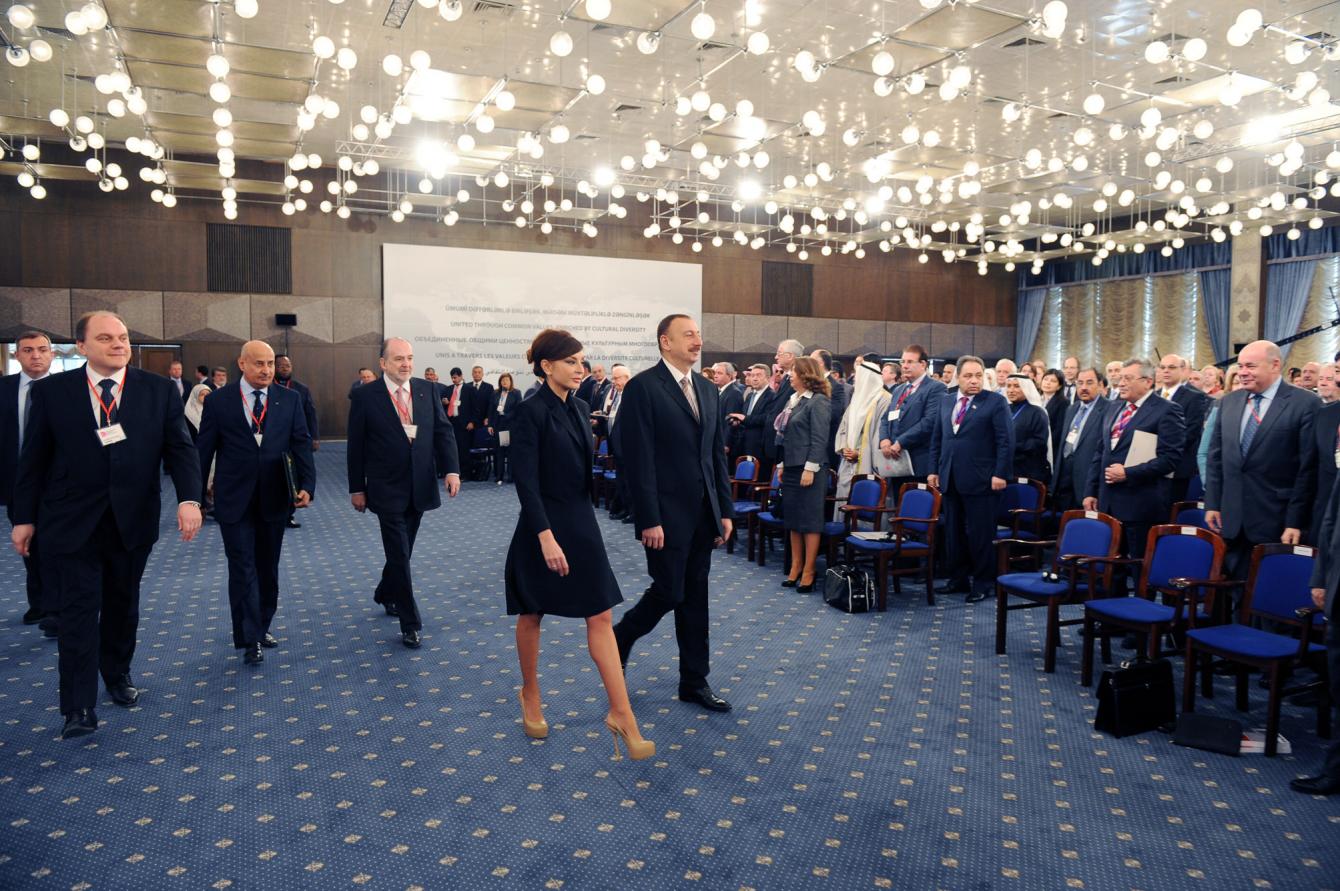
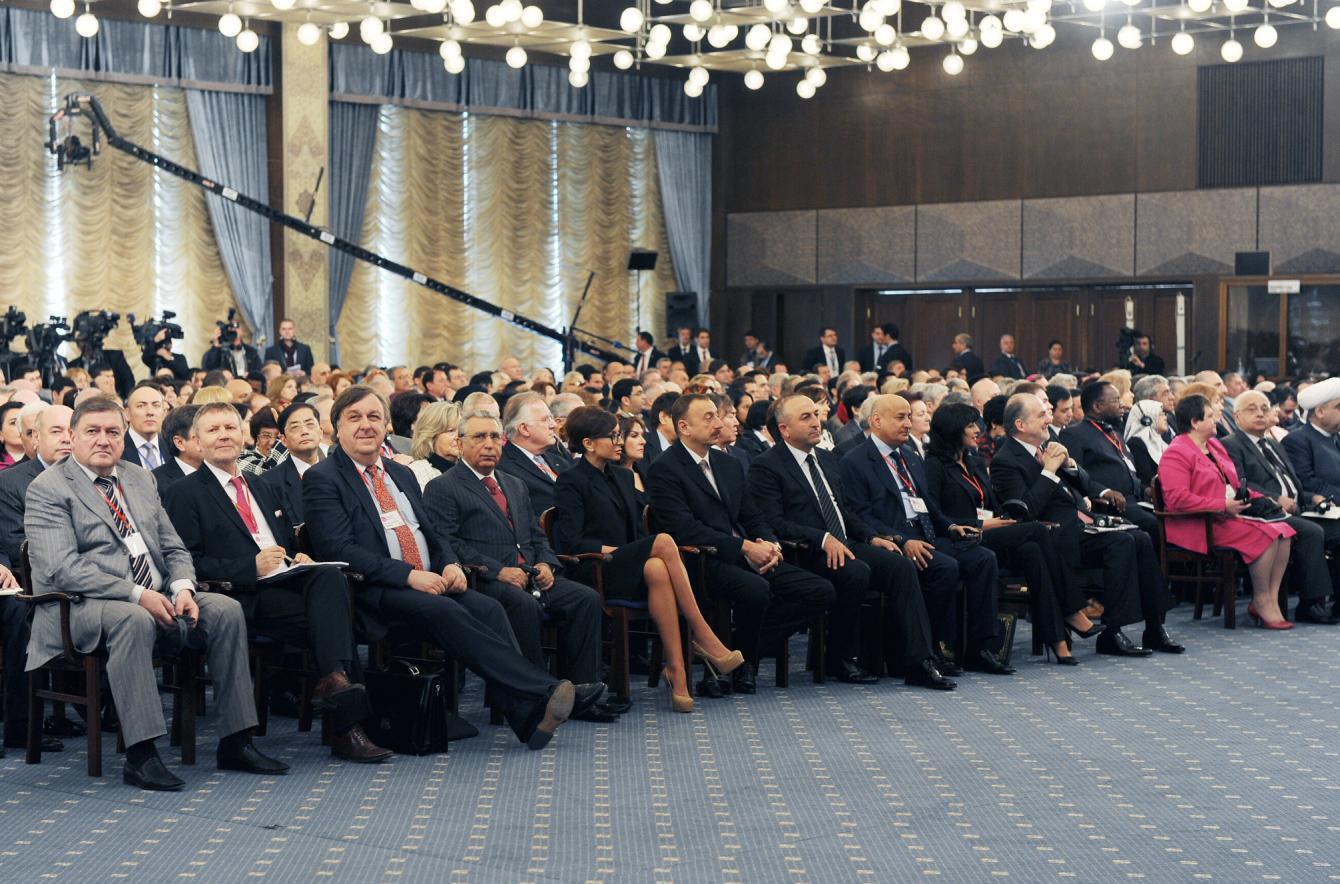
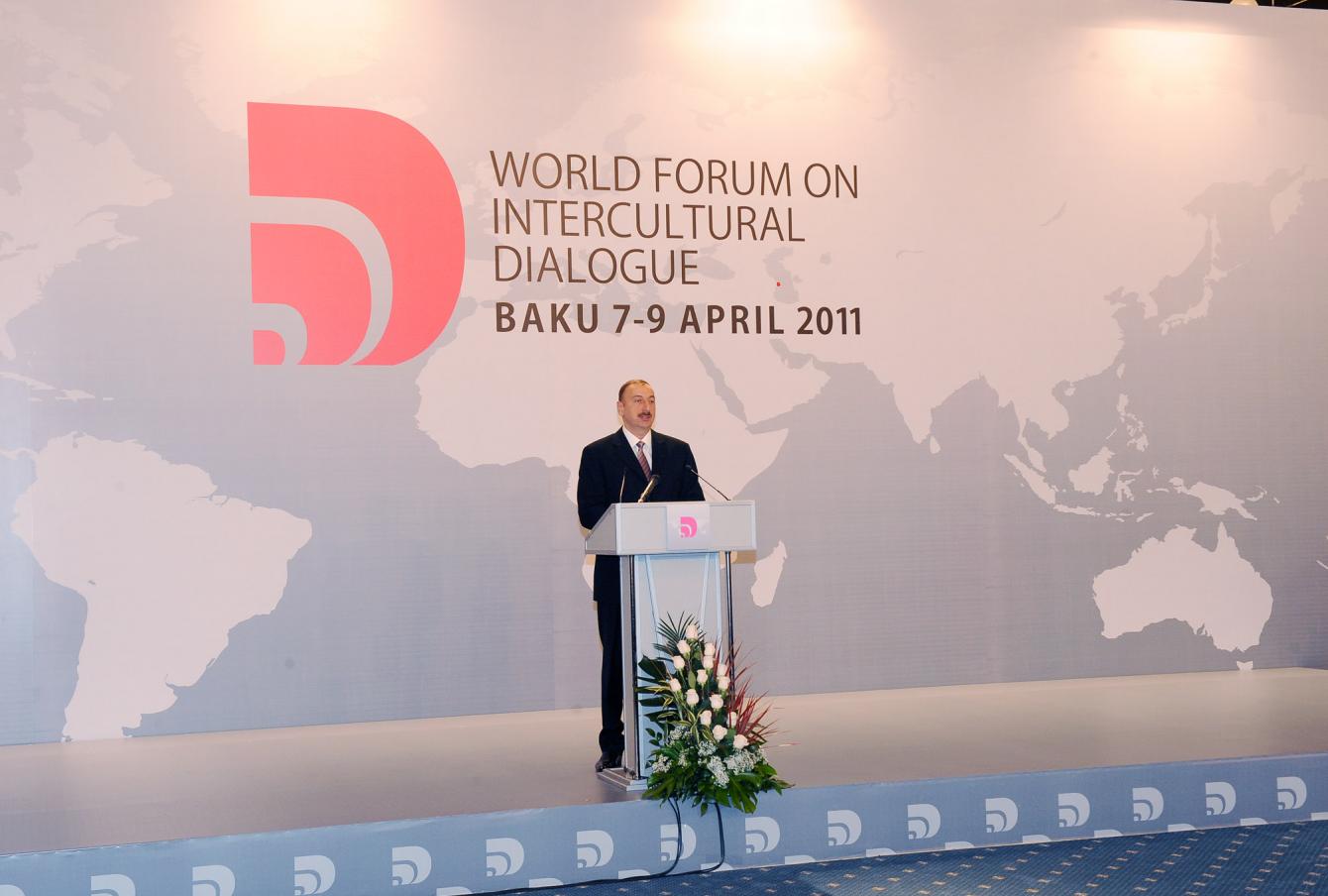
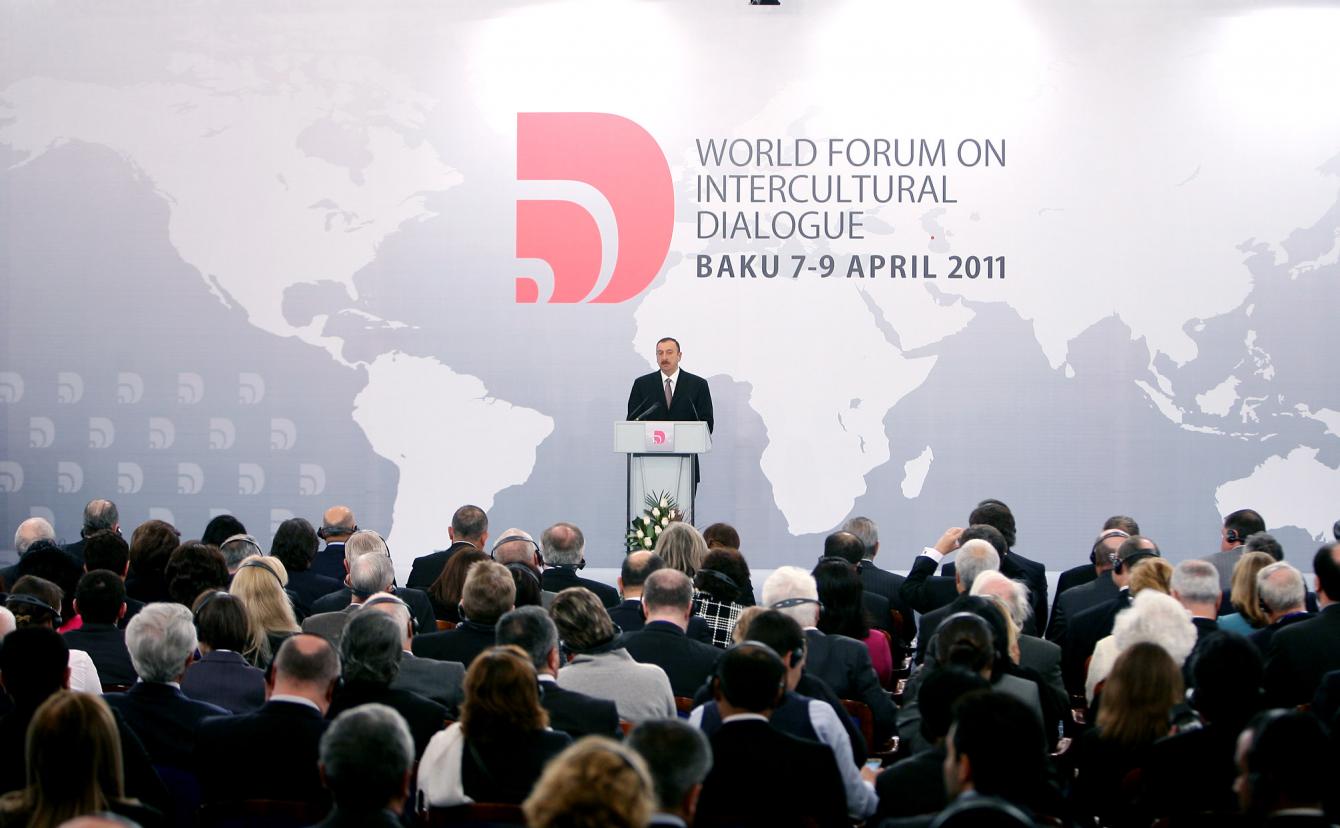
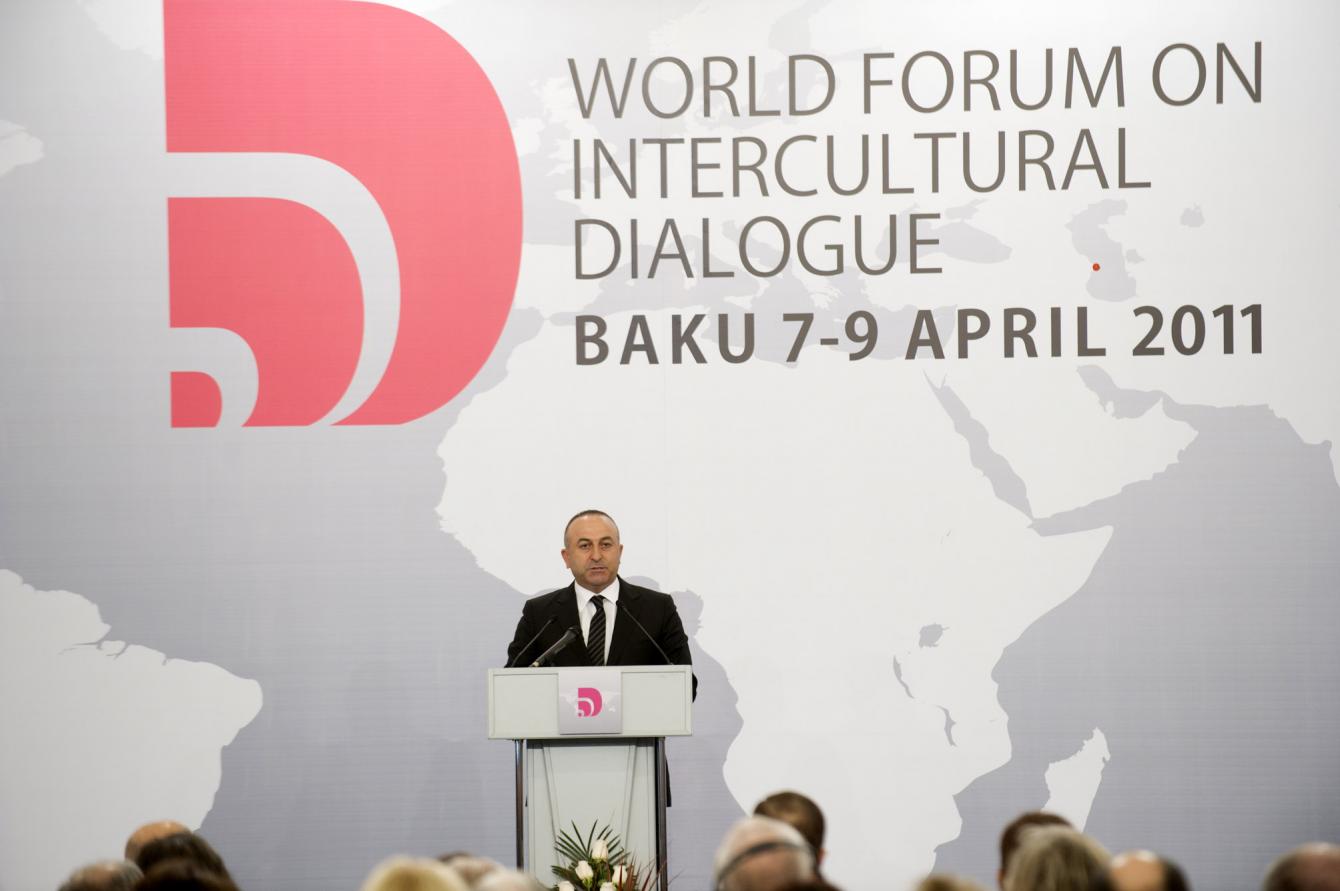
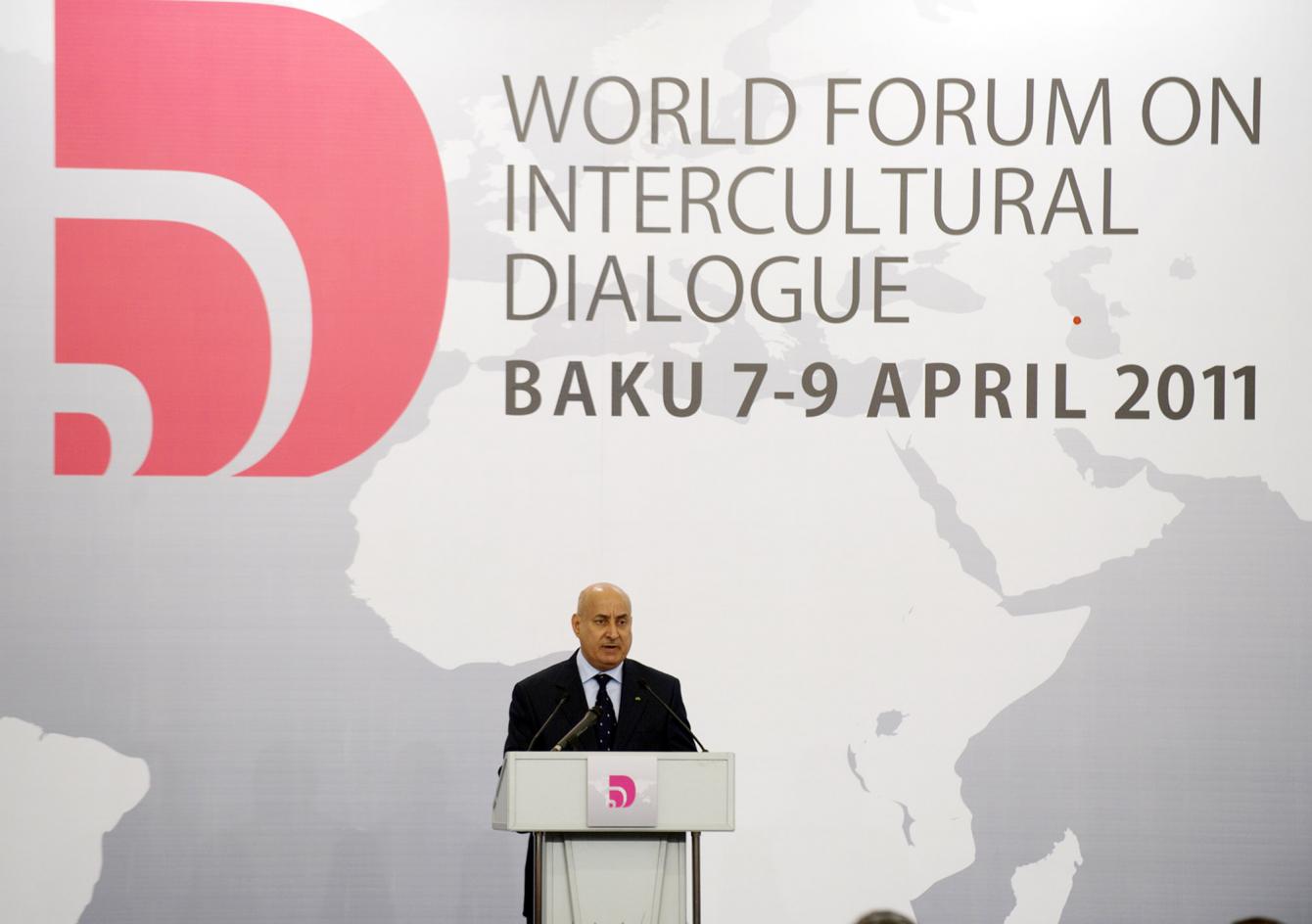
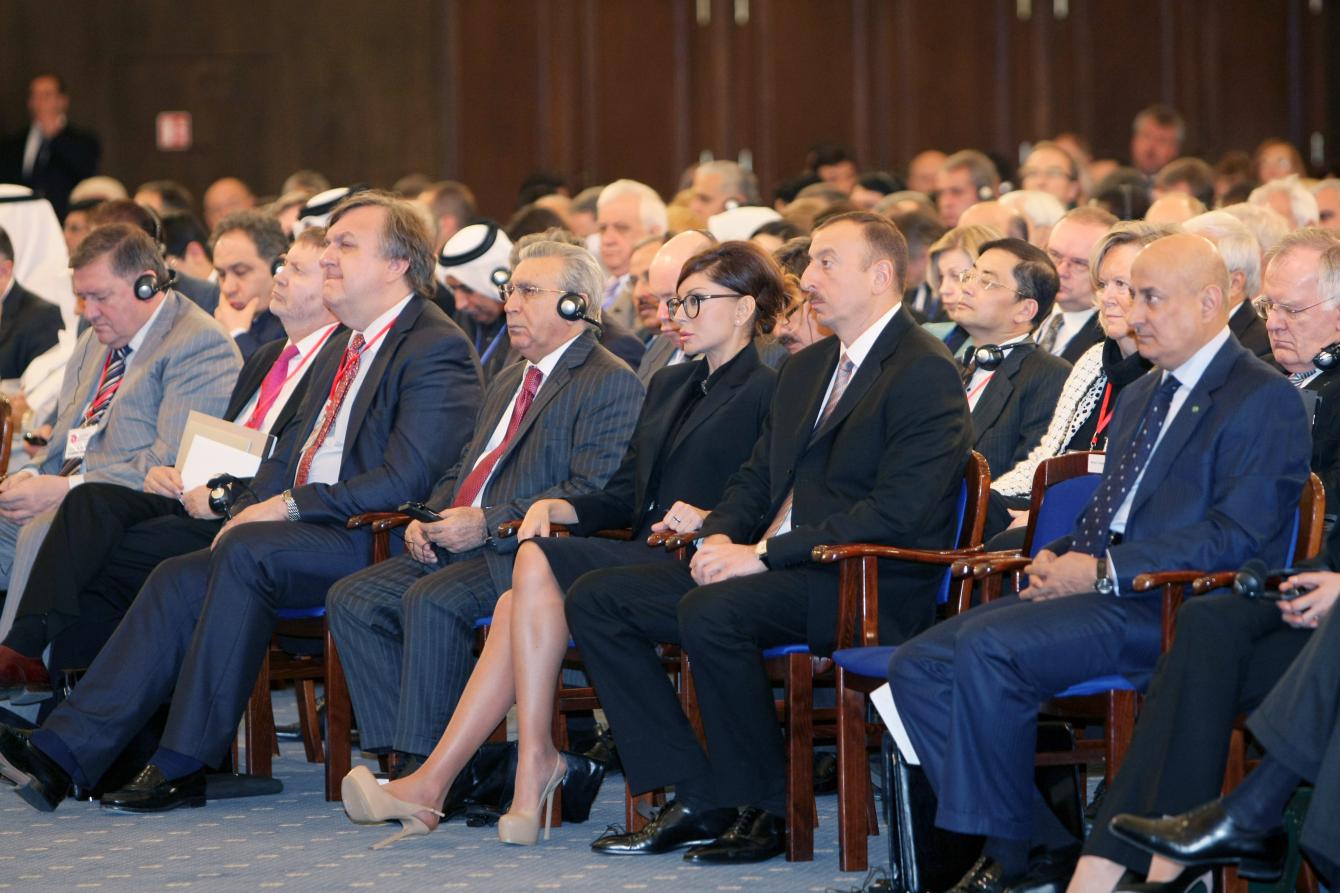
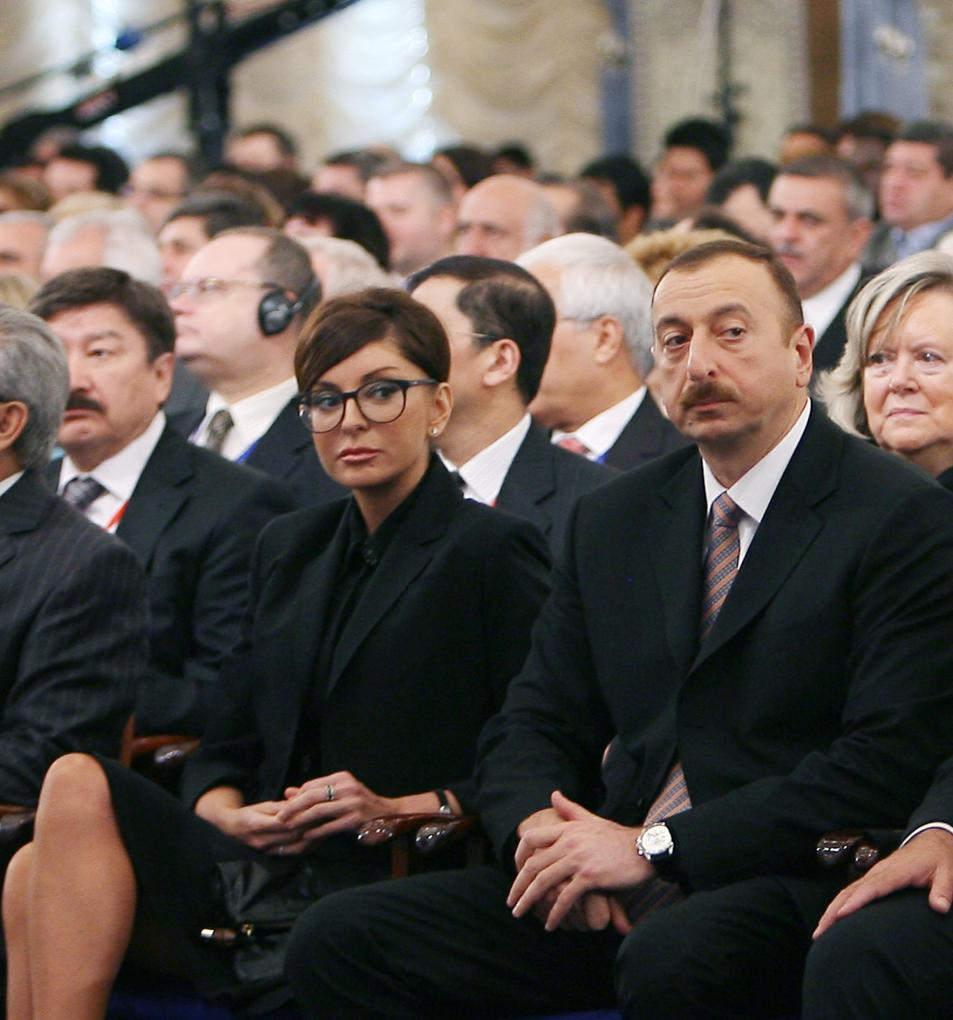
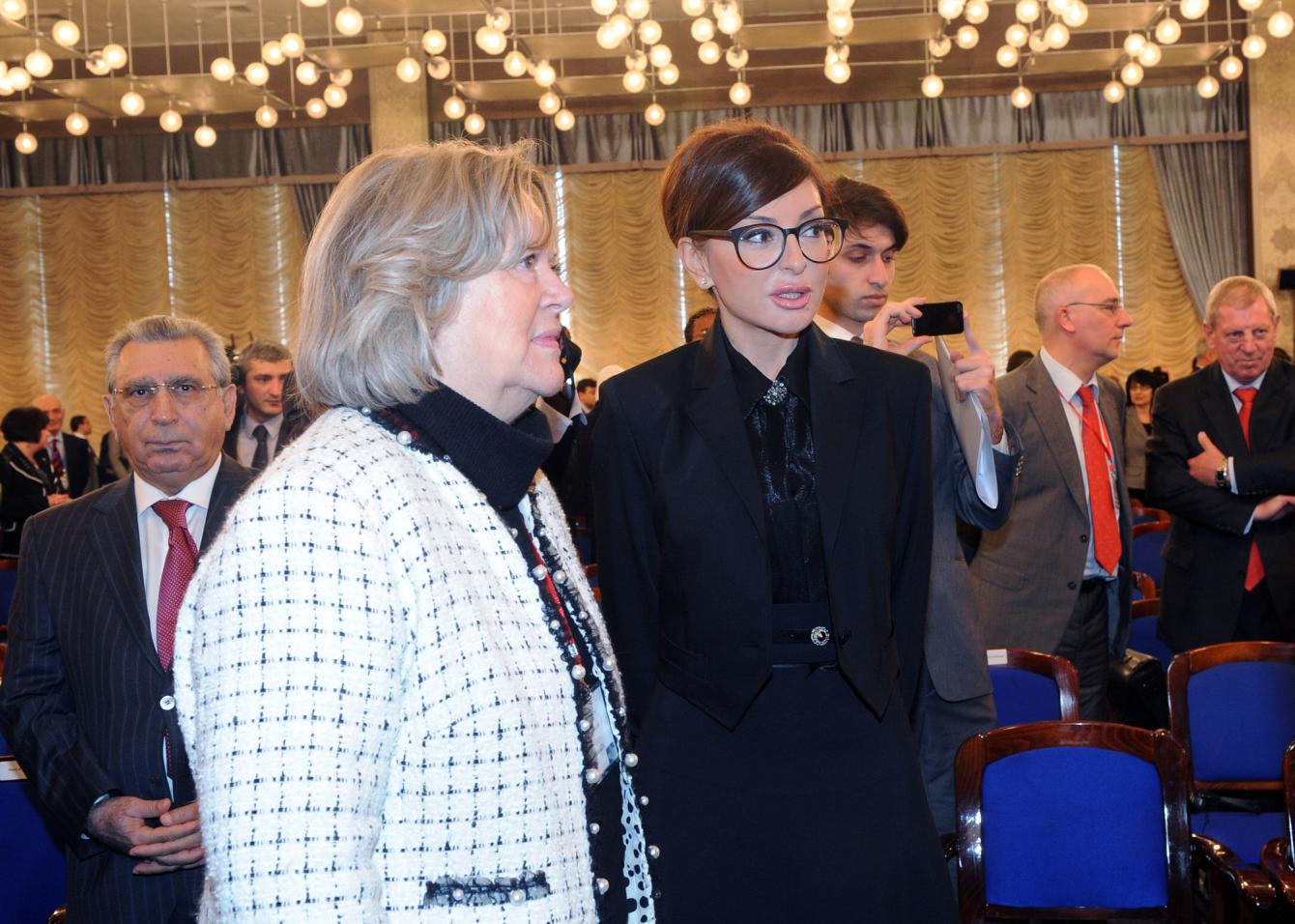
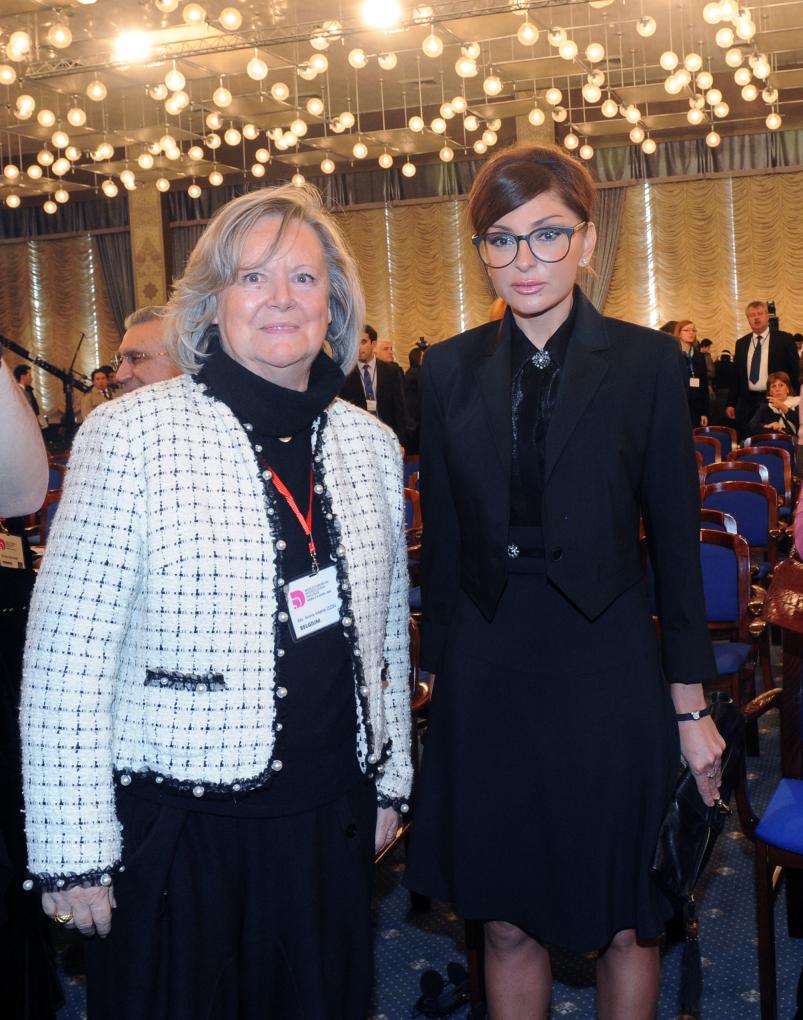
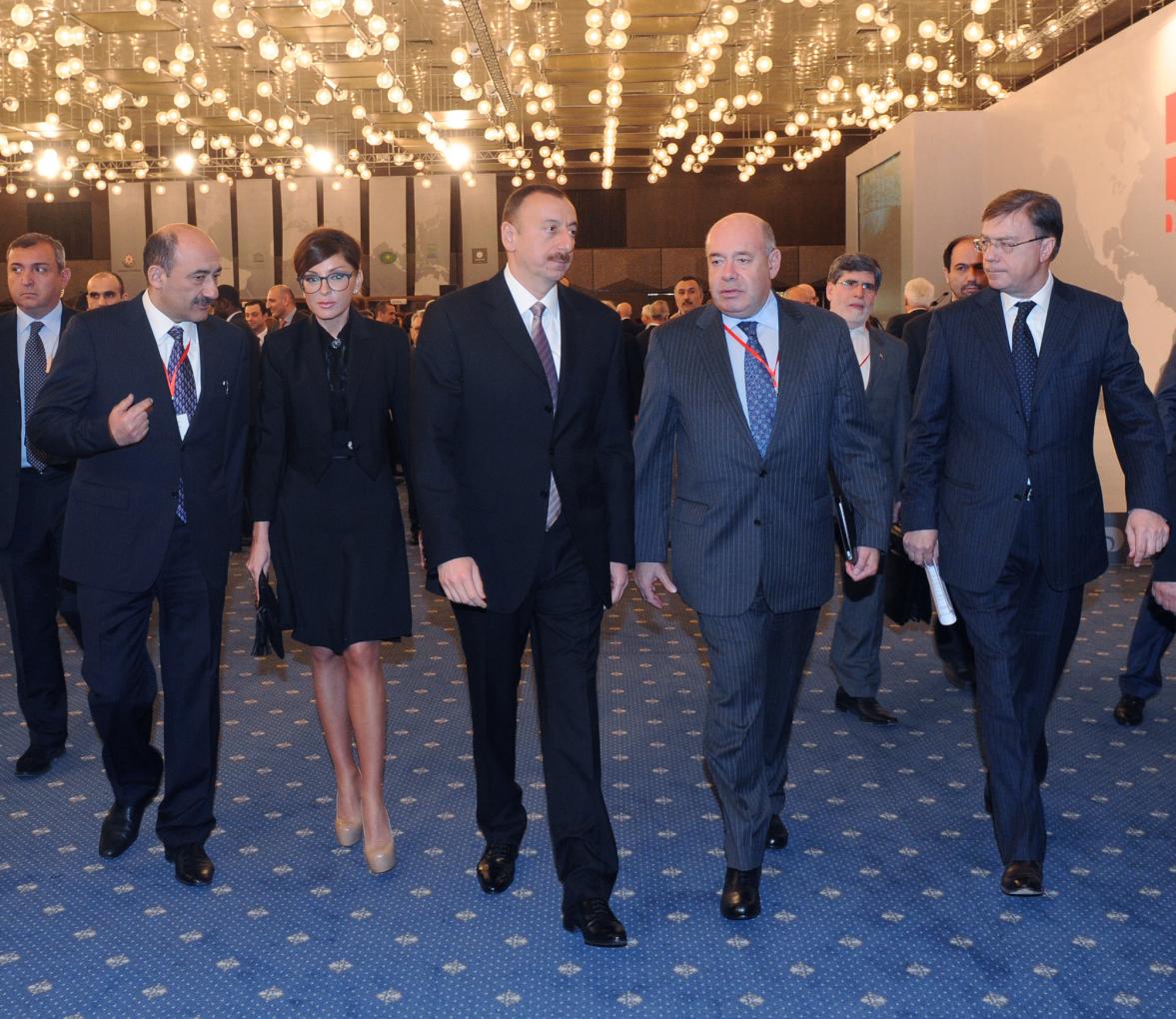
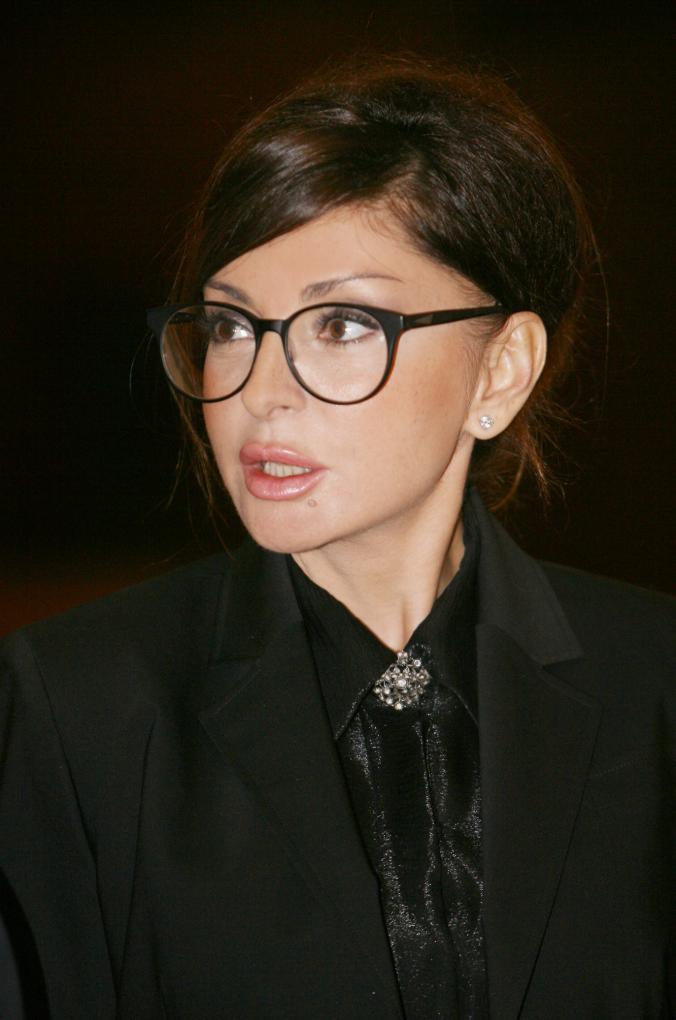
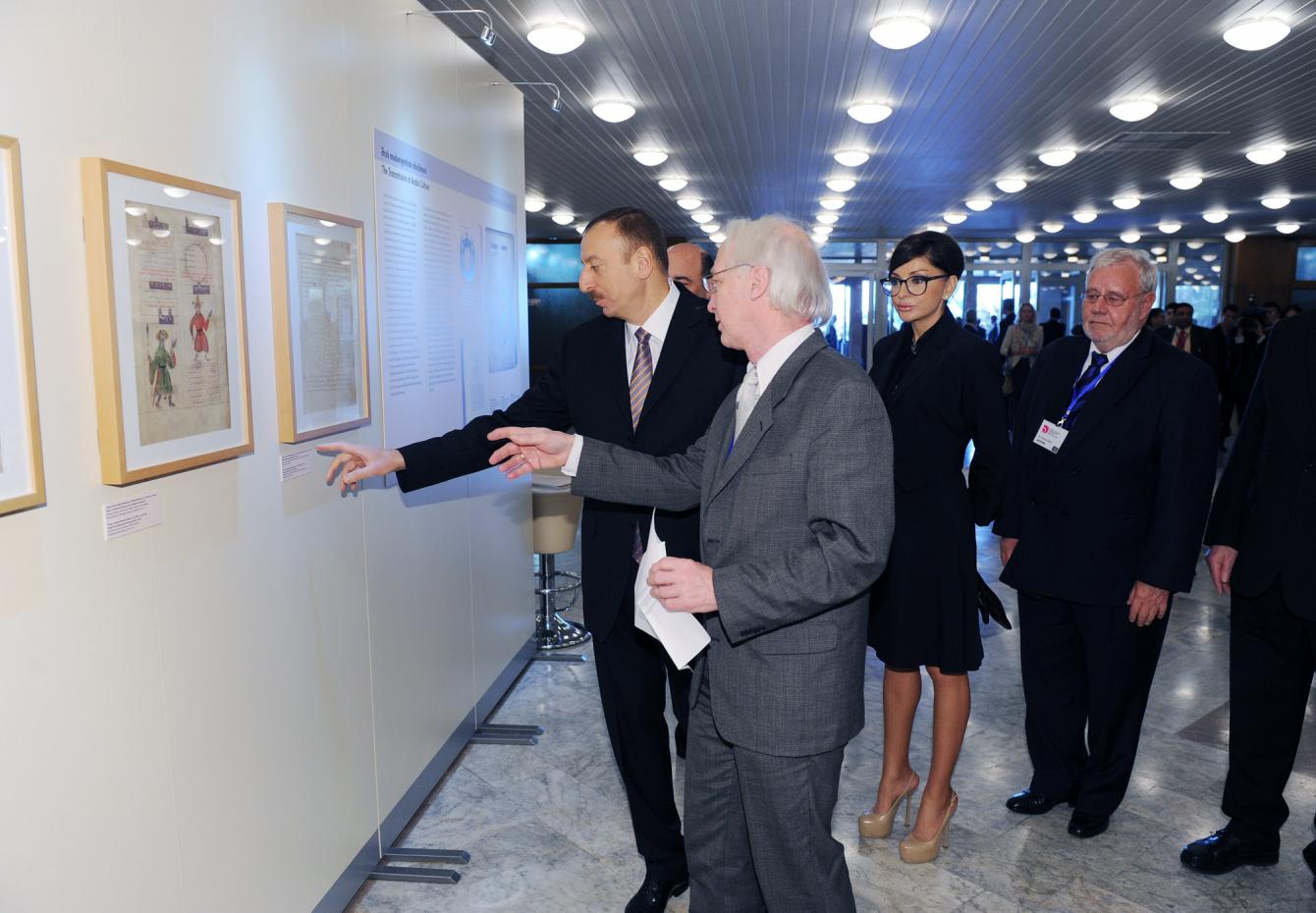
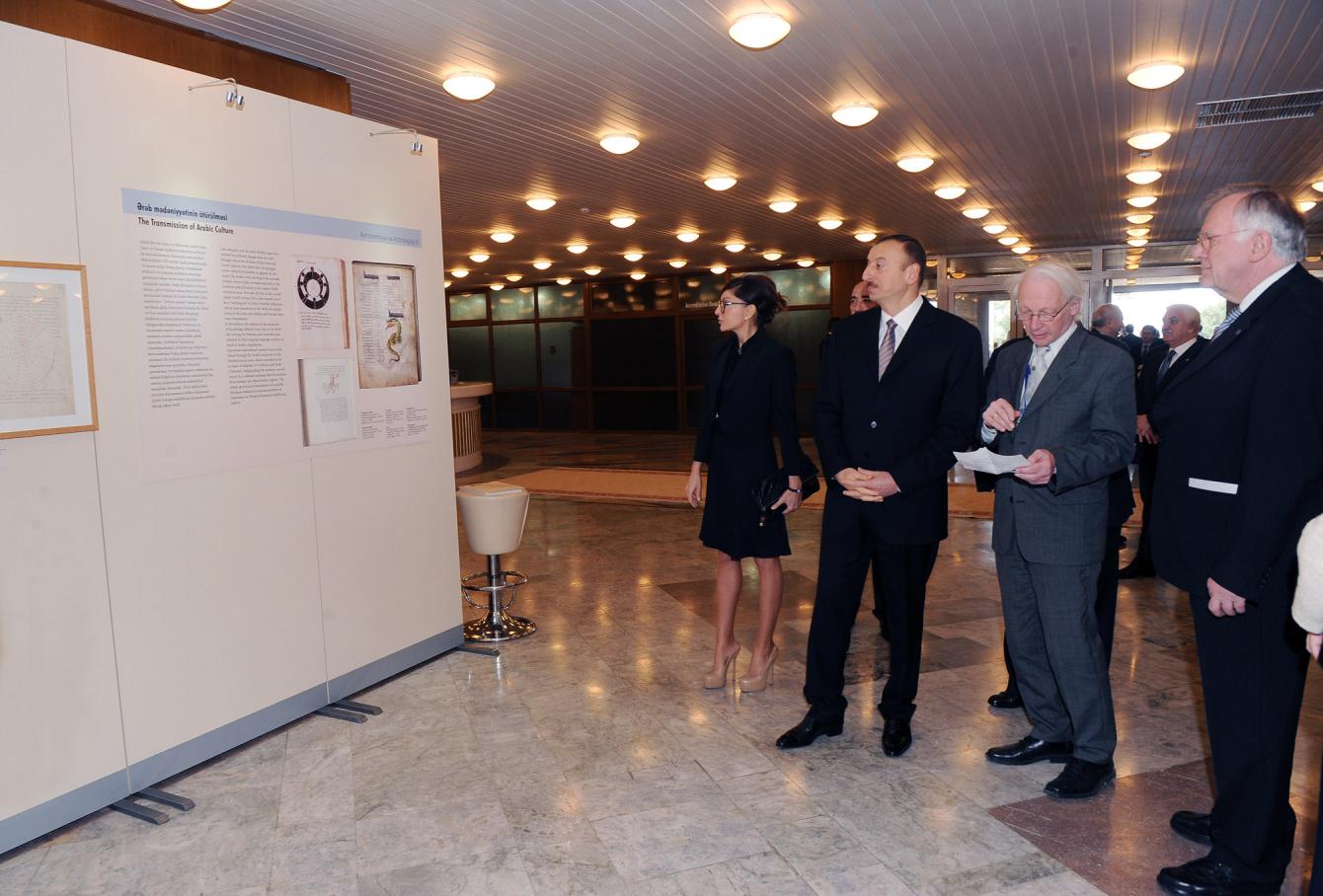
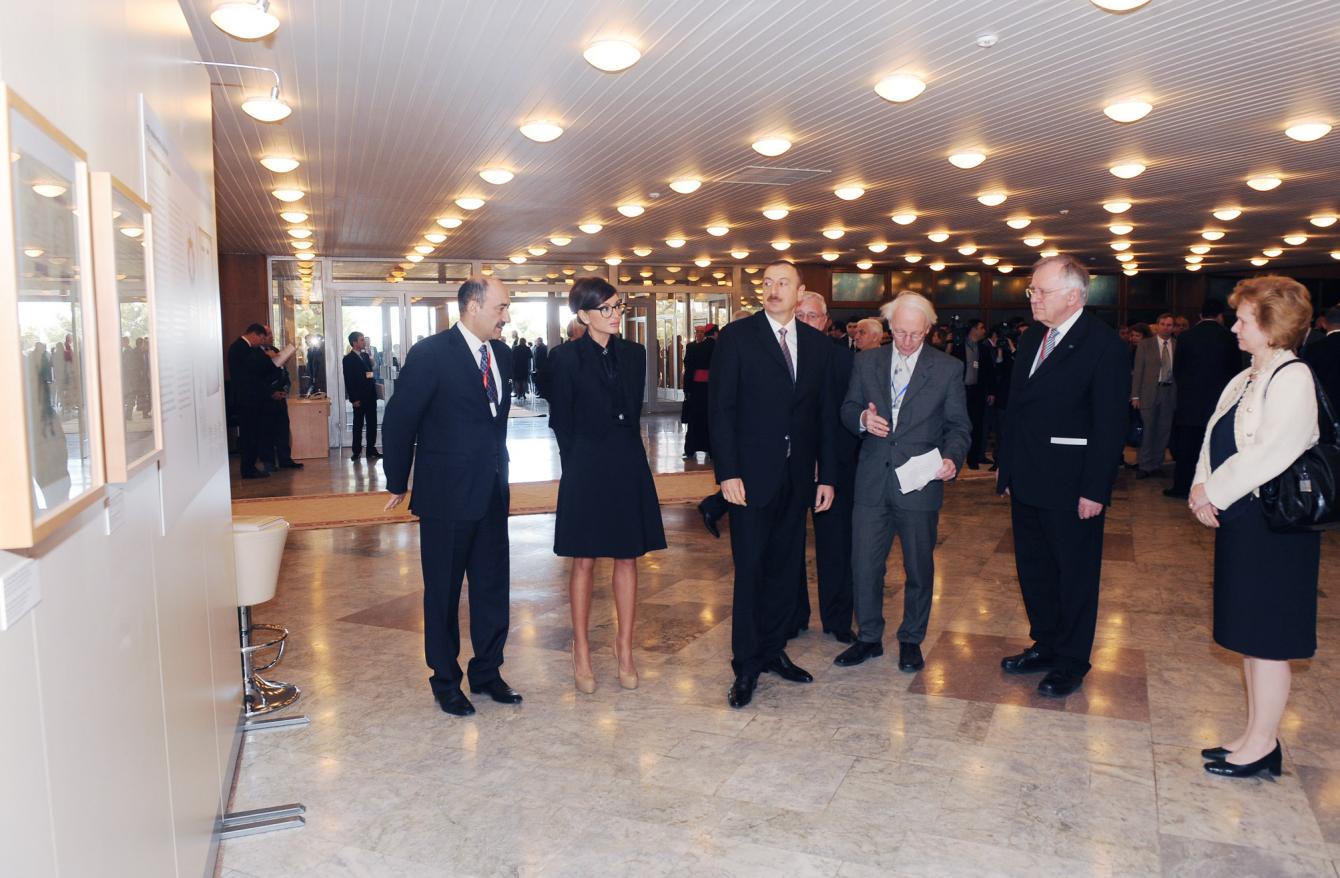
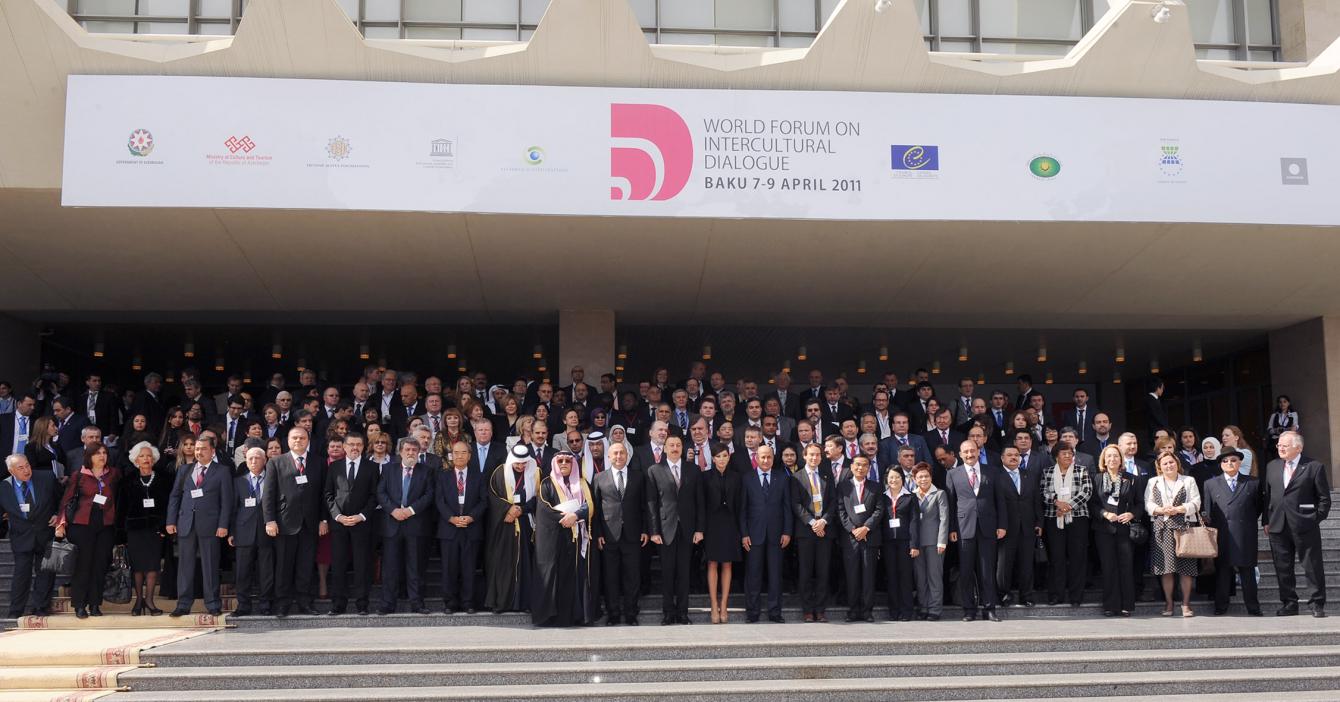

His Excellency Mr. Ilham Aliyev, President of the Republic of Azerbaijan
Your Excellency,
On behalf of the people and government of the Hashemite Kingdom of Jordan, I would like to extend to Your Excellency and the great people of Azerbaijan our sincere...
27 May 2025, 17:52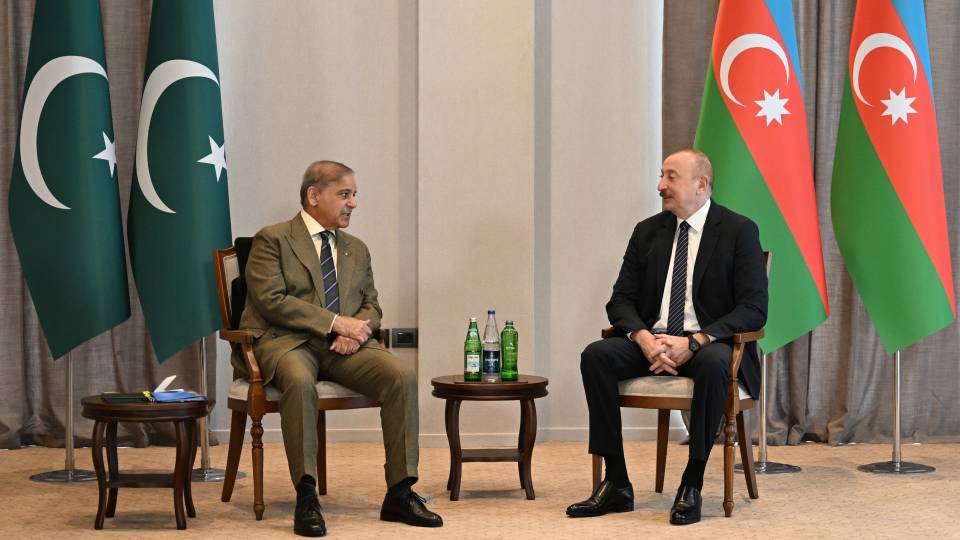
His Excellency Mr. Ilham Aliyev, President of the Republic of Azerbaijan
Excellency,
I am writing to extend my heartfelt felicitations on the occasion of the National Day of the Republic of Azerbaijan. On this auspicious occasion, I convey my best wishes for the...
27 May 2025, 17:21His Excellency Mr. Ilham Aliyev, President of the Republic of Azerbaijan
Excellency,
On behalf of the Government of the Republic of the Philippines, I congratulate the Azerbaijani people on the 107th anniversary of the Independence Day of Azerbaijan.The Philippines...
27 May 2025, 15:47His Excellency Mr. Ilham Aliyev, President of the Republic of Azerbaijan
Your Excellency,Allow me, on behalf of the citizens of my country and on my personal behalf, to cordially congratulate you and the friendly people of the Republic of Azerbaijan on the National...
27 May 2025, 14:56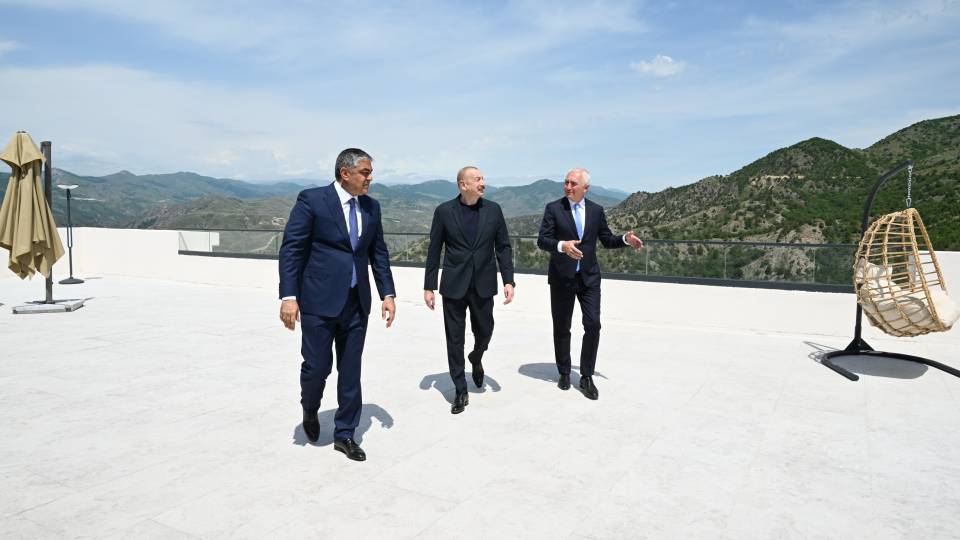
His Excellency Mr. Ilham Aliyev, President of the Republic of Azerbaijan
On the occasion of the Independence Day and National Day of the Republic of Azerbaijan, I wish to extend to Your Excellency my sincere felicitations and best wishes for your good health and...
27 May 2025, 14:28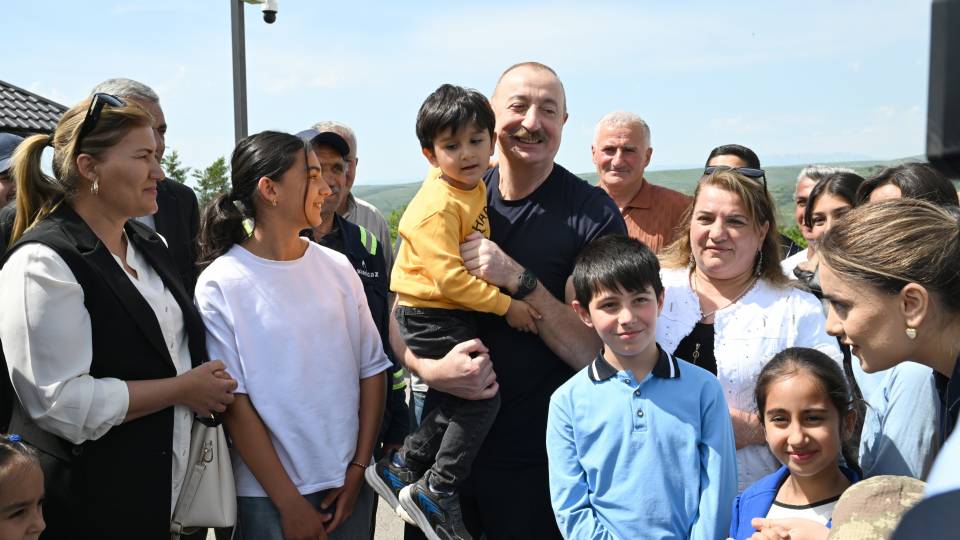
His Excellency Mr. Ilham Aliyev, President of the Republic of Azerbaijan
Dear Mr. President,
On the occasion of the National Day of the Republic of Azerbaijan, it is a pleasure to extend, on behalf of the citizens of the Republic of Croatia and on my behalf, warm...
27 May 2025, 13:56Hix Excellency Mr. Ilham Aliyev, President of the Republic of Azerbaijan
Dear Ilham Heydarovich,
It gives me great pleasure to extend to you and to the friendly people of the Republic of Azerbaijan my heartfelt congratulations and best wishes on the occasion of your...
27 May 2025, 13:54His Excellency Mr. Ilham Aliyev, President of the Republic of Azerbaijan
Your Excellency,
It is my profound privilege to share my warmest congratulations to you and the people of Azerbaijan on the occasion of your Independence Day. The people of Israel join me in...
27 May 2025, 13:39